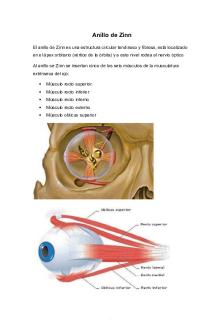Zinn Chapter 4 - zinn PDF

| Title | Zinn Chapter 4 - zinn |
|---|---|
| Course | American Cultural History |
| Institution | Southern Methodist University |
| Pages | 3 |
| File Size | 56.3 KB |
| File Type | |
| Total Downloads | 91 |
| Total Views | 125 |
Summary
zinn...
Description
ZINN CHAPTER 4 1. What is the thesis of this chapter? The thesis of this chapter is that there were many equality issues within the United States, even before the revolution had begun and these feelings helped the Americans fight off the British and after British lost its power, the wealthy and influential got to take power and then lower classes were oppressed 2. According to Zinn, how did the creation of the United States benefit the upper class? The wealthy now had the opportunity to to take land, political power, profits, and other forms of power away from the British 3. Describe the disproportionate distribution of wealth in Boston, Philadelphia, and New York. 5% of the population controlled 49% of the taxable assets in Boston. All of these cities had extreme wealth concentration in the top 5% of people. 4. Why were both Loyalists and leaders of the Revolution concerned about the lower classes in Philadelphia. The lower classes were launching rebellions and they were basically attacking wealth and the right to acquire property 5. What major issues fueled the Regulator movement? Farmers were forced to pay taxes and they were losing a lot and being put in jail so they knew that wealth and political power ruled and they wanted to put an end to that 6. What was General Gage’s observation vis-à-vis the leaders of the movement against the Stamp Act?
The people who instigated rebellions for the Stamp Act were also the same people who were afraid of losing their own wealth 7. What advice did colonial leaders including -- Samuel Adams and James Otis -give to the people concerning the Townshend Acts? They said that there shouldn’t be any mobs and the properties of their enemies should be safe 8. What class did the leaders of the Sons of Liberty come from? What was their goal? They came from the middle and upper class and they wanted to get more wage earners into their organization 9. What was the significance of Patrick Henry’s oratory?
It was a way to relieve tension between the upper class and lower class and bring them together against the British 10. What was one of John Adam’s concerns vis-à-vis Thomas Paine’s Common Sense?
He thought that it didn’t have any constraints and there would just be evil that comes out of it 11. According to Zinn, who does Paine really represent? He represents the middle class
12. What groups of Americans were deprived of the ideals set forth in the Declaration of Independence?
Women, Natives, and Slaves didn’t have these ideals
13. What is the irony Zinn tries to convey concerning John Locke? His advocacy focused on supporting those who were already rich
14. Explain the statement: "Tyranny is Tyranny let it come from whom it may."
It means that anyone can cause tyranny, even ordinary people. You don’t need to have the status of a royal but if you have money and control over government, you can have a tyranny...
Similar Free PDFs

Zinn Chapter 4 - zinn
- 3 Pages

Howard ZINN Extended Summary
- 9 Pages

9-Ricardo Zinn por Vicente
- 15 Pages

Howard Zinn - Lecture 1 notes
- 2 Pages

Zinn Chapter 11 Robber Barons Rebels
- 34 Pages

4 - chapter 4
- 3 Pages

Chapter 4 quiz #4
- 2 Pages

Chapter 4
- 13 Pages

Chapter 4
- 3 Pages

Chapter 4
- 25 Pages

Chapter 4
- 34 Pages
Popular Institutions
- Tinajero National High School - Annex
- Politeknik Caltex Riau
- Yokohama City University
- SGT University
- University of Al-Qadisiyah
- Divine Word College of Vigan
- Techniek College Rotterdam
- Universidade de Santiago
- Universiti Teknologi MARA Cawangan Johor Kampus Pasir Gudang
- Poltekkes Kemenkes Yogyakarta
- Baguio City National High School
- Colegio san marcos
- preparatoria uno
- Centro de Bachillerato Tecnológico Industrial y de Servicios No. 107
- Dalian Maritime University
- Quang Trung Secondary School
- Colegio Tecnológico en Informática
- Corporación Regional de Educación Superior
- Grupo CEDVA
- Dar Al Uloom University
- Centro de Estudios Preuniversitarios de la Universidad Nacional de Ingeniería
- 上智大学
- Aakash International School, Nuna Majara
- San Felipe Neri Catholic School
- Kang Chiao International School - New Taipei City
- Misamis Occidental National High School
- Institución Educativa Escuela Normal Juan Ladrilleros
- Kolehiyo ng Pantukan
- Batanes State College
- Instituto Continental
- Sekolah Menengah Kejuruan Kesehatan Kaltara (Tarakan)
- Colegio de La Inmaculada Concepcion - Cebu




